QuestionHello! I'm not sure if you can give me the answers I'm trying to find, but I hope you can point me in a right direction. I have a problem-child beardie, in that he's been "not right" since I purchased him. Let me start with a brief history to get you to the current:
Initially when I purchased him, he was heavy in parasites and constipated. It took a week for him to have his first bowel movement. It took several trips to the vet to get him clean of parasites, but his bowel problems persisted. He'd go between 1-3 times a month at best, and had vomited once or twice (possibly due to the dewormer he was on). The exotic vets who were seeing him couldn't conclude why he was having trouble defecating, and various treatments yielded no positive results. I had bloodwork done and at the time the results were all within the normal ranges. After the fourth or fifth visit to the vet, (in which vitamin K was administered to stimulate appetite), he quit eating, and did not eat more than the occasional pellet from around midsummer to winter. Then his appetite picked up and became virtually ravenous, he became more alert, and he managed to defecate somewhat on his own, but I started having to help him go and have been doing so since.
Once again when summer came around this year his appetite died down and he became less energetic. Now as we are approaching fall his appetite is surely coming back.
In addition to that: he is a healthy weight, 550 grams at his last weigh and his primary diet when he *does* eat are mealworms. I cannot get him to eat greens or veggies of any kind, and he refuses crickets. He does take phoenix worms and silk worms but those are very hard to come by in my area. Occasionally he'll eat a bite of pelleted food. I has tried baby food for a while to get something other than meal worms into his system but was advised by a breeder to not use baby food. I currently offer him either kale, romaine or mustard greens daily, but he never even notices them. I use a calcium supplement with added D3, but with his irregular eating pattern, I cannot guarantee he gets the right amount all the time.
While he does lie around a lot, he has his very high-energy days. Especially if I take him out, he will run around, and act perfectly normal. His enclosure is a 40 gallon terrarium and I use towels as a substrate since I cannot find reptile-carpet to fit his terrarium. His temperatures in the enclosure range from mid-seventies to about 105 in the basking spot. He has an under-tank heater at night. Using a 10.0 UVB compact fluorescent, changed about two months ago.
A few weeks ago I inspected his urates after a bowel movement to find them hard and somewhat gritty. My current vet and I had some blood sent off for analysis because I was fearing he might be going into kidney failure, but the blood back fairly regular. One value for liver function was strangely high, but it didn't directly point to anything (and the other values associated with liver were within normal limits). The only other thing was that he was a bit dehydrated according to the cell count, which I find odd considering that I mist him almost daily and he drinks water fairly often. Currently my vet is talking to some of his colleagues for advice and suggestions.
My only thought is that perhaps he is trying to brumate in an off season, which might be why he drops his appetite and activity in the summer, but it still doesn't explain his problems with his bowels. Liver damage due to the excessive treatment for his parasites? Congenital problems, perhaps? Any suggestions at all? Thanks!
AnswerFirst of all, get rid of the compact bulb, those cause eye damage in reptiles. There's a link in ReptileUV.com which will explain the problem in full. linear fluorescent tubes and mercury vapor bulbs are the only UVB sources I would trust.
Don't be surprised, many beardies have been brumating earlier since 2004. Brumation has nothing to do with temperatures, more due to their circadian rhythm.
If he is a little dry, I would suggest lukewarm baths to get him pooping.

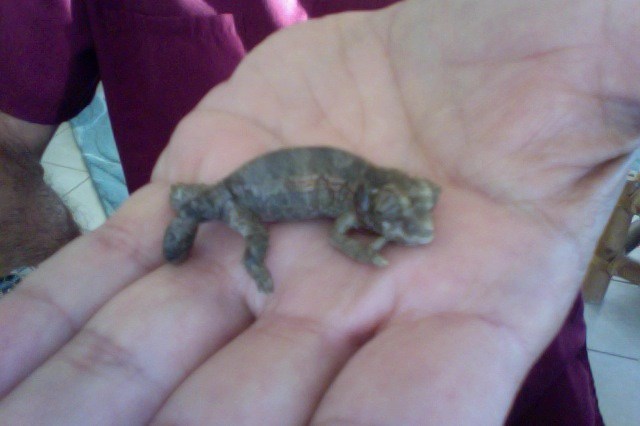 1 month old Jackson Chameleon hind legs immobilized
Question
baby jackson chameleon baby jackson cham
1 month old Jackson Chameleon hind legs immobilized
Question
baby jackson chameleon baby jackson cham
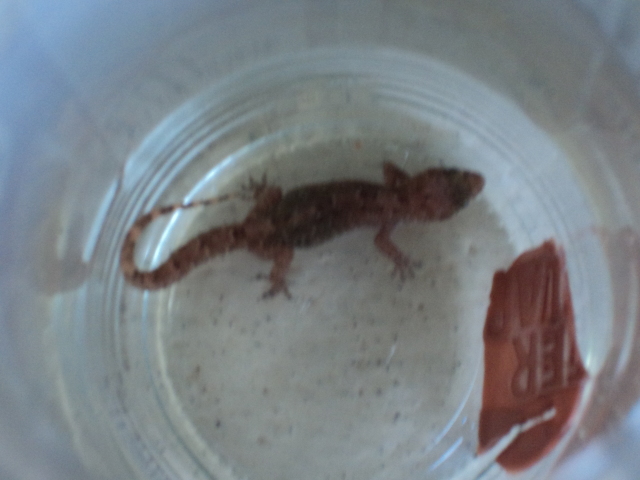 East African Lizard
Question
Lizard
Good morning,
I am currently working
East African Lizard
Question
Lizard
Good morning,
I am currently working
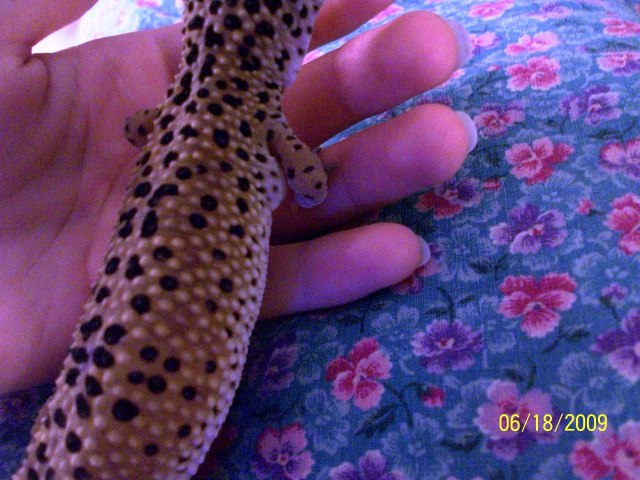 I forgot budys picture
Questionbudy
QUESTION: Hi sorry I forgot to atta
I forgot budys picture
Questionbudy
QUESTION: Hi sorry I forgot to atta
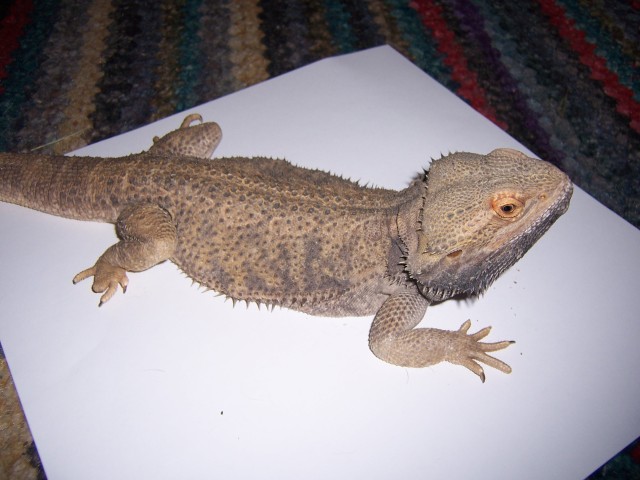 Dragon turning yellow
QuestionQUESTION: I have a 7 year old male, was g
Dragon turning yellow
QuestionQUESTION: I have a 7 year old male, was g
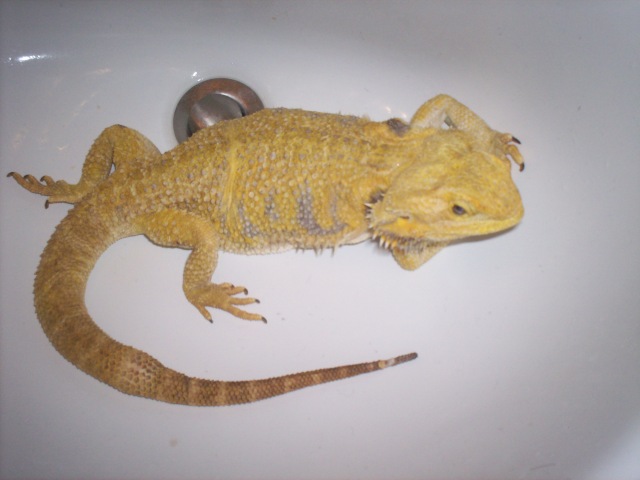 Female Beardies Swollen Tail
QuestionQUESTION: Hello!
I hope you can help me with a
Female Beardies Swollen Tail
QuestionQUESTION: Hello!
I hope you can help me with a